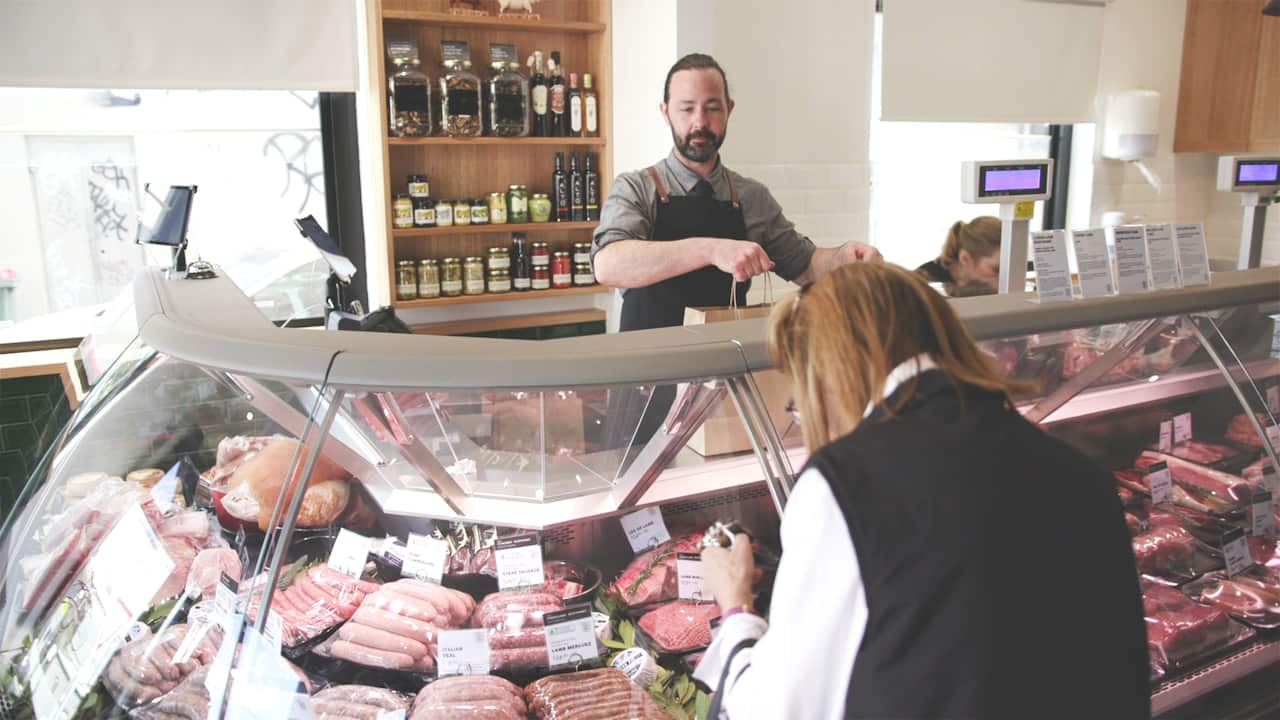Parts of NSW have received much-needed rain in recent weeks, but it’s not enough to break the drought. While Sydney has received the bulk of the rainfall, there’s little relief on the way for the rest of the state, with the Bureau of Meteorology forecasting dry conditions to continue into early next year.
That’s not only a cause for concern for NSW farmers but also businesses further down the supply chain, such as butchers, who are finding it harder to source a regular supply of quality meat.
Sydney-based butcher, Stephen Baillie has been feeling the pressure in recent months. His business, Mr Baillie + Co sources pasture fed produce directly from NSW farmers. “There were farms that were supplying us last year that we can’t get meat from because they’re in drought and can’t fatten up the animals to the right weight to send to us,” explains Steve.
“There were farms that were supplying us last year that we can’t get meat from because they’re in drought and can’t fatten up the animals to the right weight to send to us,” explains Steve.

Stephen Baillie owner of Sydney based butcher, Mr Baillie + Co is finding it difficult to source a regular supply of meat, as a result of the drought. Source: Supplied
“We have to resort to buying branded products.
“A branded product means it’s from a specific area, but you can’t narrow it down to a specific farm.”
One of Steve’s suppliers is a biodynamic farm in Oberon NSW, run by father and daughter Paul and Tammy Kurtz.
“We’ve had to buy a lot of hay and quite a lot of grain just to keep the market going,” says Paul.
“We just bought another load of grain and it cost us something in the vicinity of treble what it would have cost us 18 months ago.
“I think if that keeps going it’s going to be batten down the hatches and survival mode, not trying to do the right thing and keep our product coming through to the butchers.”![Paul & Tammy must feed their livestock biodynamic fodder to comply with their Demeter certification standards]](https://images.sbs.com.au/drupal/news/public/my_ballie_farm.jpg?imwidth=1280) “It’s tough, but there are a lot of people who are a lot worse off than us, so, I’m grateful for what I do have,” says Tammy.
“It’s tough, but there are a lot of people who are a lot worse off than us, so, I’m grateful for what I do have,” says Tammy.
![Paul & Tammy must feed their livestock biodynamic fodder to comply with their Demeter certification standards]](https://images.sbs.com.au/drupal/news/public/my_ballie_farm.jpg?imwidth=1280)
Paul & Tammy Kurtz must feed their livestock bio-dynamic fodder to comply with their Demeter certification standards. Source: Supplied
In recent months, Steve has spent time on the road, visiting farmers around NSW so that he can pass on their messages to the customers.
“A lot of customers are asking about the impacts on the farmers because they know we are a direct source from the farmer, and we do have those relationships with the farmer,” explains Steve.
“People in Sydney want a story; they want to know where their meat has come from and how it was produced.“
The challenge for whole body butchers like Steve is promoting sustainable practices beyond the paddock, to the plate.
“When you’re eating your eye fillet at home you’re eating 2% of the cow,” explains Steve.
“I think now more than ever it’s a really good time to think about conscious consumption and using that whole animal and not wasting any of it.”


